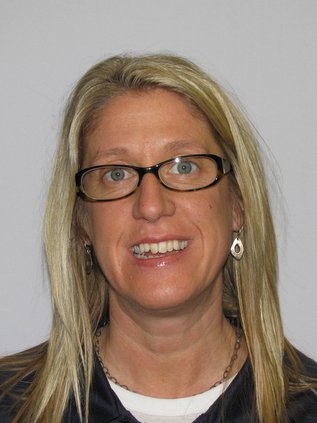It probably won’t happen this year or next but when 2027 rolls around, some Juvenile Services (JS) programs will be at risk – or even axed, said Marissa Woodmansee, JS director.
This all started in 2016 when the Kansas Legislature passed a bill aimed at reducing out-of-home placements for juveniles at a reported savings of $44 million.
“This money was supposed to be kept in a lockbox but the amount has dwindled over the years,” Woodmansee said. “We need to put the money back to keep our programs going. All we know is that, from year to year, varying amounts are going into the state general fund.”
Programs involved include Parent Project, Day School, Community Service, Intake and Assessment, Immediate Intervention, Intensive Supervised Probation and Case Management.
“We have used our allocations for these programs according to statute, with the blessing of the Kansas Department of Corrections (KDOC),” Woodmansee noted.
In 2013, JS went under the KDOC umbrella; it has been flat-funded for nine years. During this time span, there have been many programming changes that enhance support for juveniles and empower their parents.
“When KDOC is mentioned, people immediately think of prison, not community based-programs,” Woodmansee said. “I need to do a better job of raising awareness about our community-based efforts and the need for the responsible allocation of state dollars.”
The natural result of program cuts would be fewer staff members to guide youth and families, Woodmansee said, noting this would be a disservice to the entire five-county 20th Judicial District.
“Our community case managers go above and beyond every day, providing a lot of one-on-one guidance to young people in the JS system,” Woodmansee commented. “Most case managers have longevity and the knowledge that comes with it.
“All of us are properly trained to work with kids and parents. But if programming is cut, there will be higher caseloads and less individual attention.”
This is one reason that the possible budget cuts are having an effect today. “Our staff members are wondering if they will have jobs in two years,” Woodmansee explained. “And it’s a real shame because they like their jobs and do them well.”
Community safety
If juveniles and their parents don’t have access to JS programs, all local residents could suffer the consequences in terms of less community safety.
“Young people are in the JS system because they have been accused of misdemeanors and/or felonies,” Woodmansee said. “We supervise them at county expense.
“If that supervision is decreased or cut, we cannot reach our goal of catching problems early and preventing escalation through the justice system. When this happens, no one wins – not the juvenile, not the family and not the community as a whole.
“My goal now is to make sure I am doing a better job of explaining the important work being done in our district.”
20th Judicial District Juvenile Services empowers youth in Barton, Rice, Ellsworth, Stafford and Russell counties to achieve positive outcomes by offering Juvenile Intake & Assessment, Immediate Intervention, Intensive Supervised Probation, Case Management, Journey to Change, Life Skills, All Stars and Youth Crew. Parents and guardians also are offered The Parent Project. Visit 1800 12th in Great Bend or call 620-793-1930.





